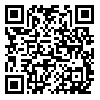BibTeX | RIS | EndNote | Medlars | ProCite | Reference Manager | RefWorks
Send citation to:
URL: http://sbrh.ssu.ac.ir/article-1-30-en.html
2- Department of Midwifery and Reproductive Health, Tarbiat Modares University, Tehran, Iran.
Background: Smoking is one of the leading causes of disease and death in the world. There is a growing trend of smoking in Iran, especially among youth and women. This study has been conducted to identify the factors related to smoking and solutions that can lead to its control in Tehran.
Methods: This study was conducted qualitatively from August 2015 to August 2016 in Tehran. The data collection tool included cognitive interviews and deep, semi-structured interviews. The participants consisted of 7 men and 5 women who smoked cigarettes; they were selected through purposive sampling with maximum diversity and snowball technique which continued until data saturation. The data was analyzed through qualitative conventional content analysis.
Results: Two main classes with 15 subclasses were extracted from the participants’ responses. The causes of smoking and the solutions for its control are evaluated along these two classes. The subclasses include factors like being accustomed to smoking, considering smoking as a normal behavior, easy access to cigarettes, recreation and entertainment; lack of recreational facilities, way of relaxing, increasing the price of cigarettes, the importance of making cigarettes scarce, and cultural and individual volition.
Conclusion: Being accustomed to smoking and considering it as an entertainment are the most important causes of smoking, and the importance of creating an anti-smoking culture and individual volition have been introduced as the most important solutions for controlling smoking in Tehran. Furthermore, it seems that reducing the public access to cigarette through various ways such as increasing the price, reducing the imports, the decline in production and supply, as well as creating a culture against smoking can reduce the amount of smoking considerably.
Received: 2017/02/22 | Accepted: 2017/05/2 | Published: 2017/05/22
| Rights and permissions | |
 |
This work is licensed under a Creative Commons Attribution-NonCommercial 4.0 International License. |






